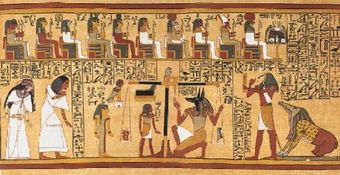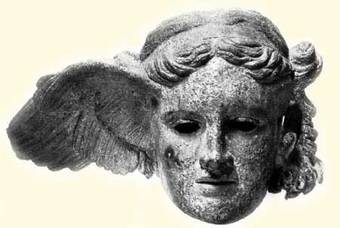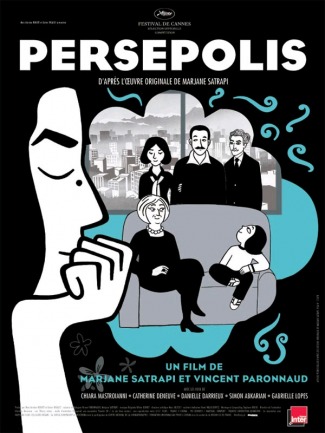Today, I find inspiration in the Egyptian Book of the Dead.
The statement above is one a soul traveling beyond this world was expected to be able to make when it reached the Hall of Truth. In this ancient guide to afterlife transits, recorded in the Papyrus of Ani, the soul was actually expected to make no fewer than 42 similar statements, affirming its innocence in relation to a long list of crimes and moral lapses. This procedure was called the Negative Confession, and it was the preliminary to the Weighing of the Heart that would decide whether the soul would be given a pass to the happy hereafter, or consigned to a devouring monster.
To contemporary Western minds, it is a puzzle why it would be so important to be able to state, “I have not obstructed water when it should flow.”
In the ancient context, the words are easy to understand.
The life of ancient Egypt depended on the gifts and the channeling of water. In Lower Egypt, farmers opened the dikes to let the swollen Nile release its waters into their walled fields – and when the river subsided and the captured water turned brackish, they opened the conduits again to empty their fields. One of the oldest images of an Egyptian king is the “Scorpion” stela showing a king opening a dike.
I do not live in a dry land, but I would like, at the end of this life – and on any day within it – to be able to affirm, without hesitation, that in the fullest, creative sense:
I have not obstructed water when it should flow.


